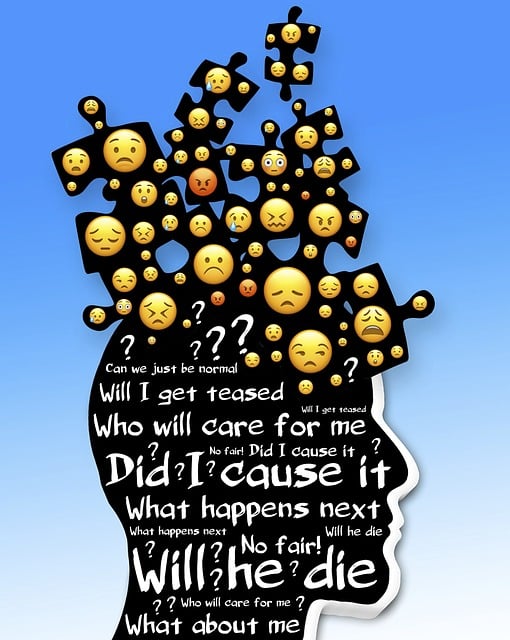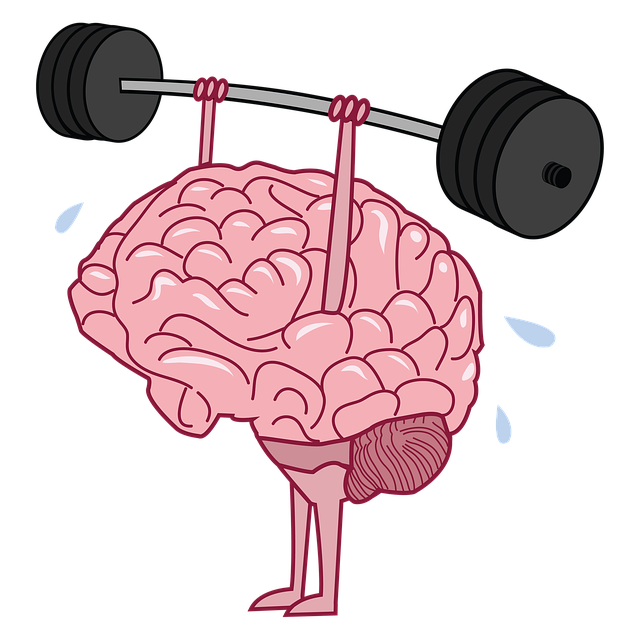Boulder First Responders Therapy (BFRT) leads impactful public awareness campaigns, utilizing diverse channels like social media, workshops, and community events to destigmatize mental health issues. Their tailored programs for first responders foster resilience and well-being, transforming communities into supportive environments. Effective outreach requires strategic content tailoring, Mental Wellness Coaching, and visually engaging storytelling. Interactive workshops, webinars, and social media challenges enhance accessibility and engagement. Robust evaluation methods measure success by assessing emotional well-being promotion and self-care routine development, aiming for improved access to resources and reduced mental illness stigma.
Public awareness campaigns play a pivotal role in educating communities, fostering preparedness, and driving positive change. This article delves into the intricacies of these initiatives, highlighting their profound impact on public safety and well-being. We explore successful examples like Boulder First Responders Therapy, a targeted outreach program that provides valuable insights. Key components for campaign development, engagement strategies, and measurement techniques are discussed to ensure effectiveness and reach.
- Understanding Public Awareness Campaigns: Their Role and Impact
- Boulder First Responders Therapy: A Case Study on Targeted Outreach
- Key Components for Developing Effective Awareness Campaigns
- Strategies to Enhance Engagement and Reach in Community Outreach
- Measuring Success: Evaluating the Effectiveness of Public Awareness Campaigns
Understanding Public Awareness Campaigns: Their Role and Impact

Public awareness campaigns play a pivotal role in educating communities about various issues, with a significant focus on mental health and well-being. In the context of Boulder First Responders Therapy, these campaigns aim to break down barriers and reduce stigma associated with seeking help. By leveraging different mediums like social media, workshops, and community events, they can effectively reach out to individuals who might be hesitant to approach professional support.
These initiatives go beyond mere information dissemination; they foster a sense of unity and encourage proactive measures for stress reduction. Integrating strategies such as Mental Health Education Programs Design and Mental Wellness Coaching Programs Development can empower individuals with self-care tools, fostering resilience and overall mental wellness. Such campaigns have the potential to create lasting impacts, transforming communities into supportive environments where everyone feels comfortable prioritizing their psychological health.
Boulder First Responders Therapy: A Case Study on Targeted Outreach

Boulder First Responders Therapy (BFRT) serves as a compelling case study for targeted outreach in public awareness campaigns focused on crisis intervention and emotional healing. This initiative specifically addresses the unique challenges faced by first responders, who are often on the front lines of traumatic events. By tailoring stress management workshops and counseling services to their specific needs, BFRT has made significant strides in promoting resilience and overall well-being among this critical segment of the population.
The organization’s approach underscores the importance of crisis intervention guidance, offering a safe space for first responders to process and cope with the emotional toll of their work. Through regular sessions and community engagement, BFRT facilitates emotional healing processes, demonstrating the profound impact of targeted support in mitigating stress and fostering mental fortitude among those who risk their lives to protect others.
Key Components for Developing Effective Awareness Campaigns

Developing effective public awareness campaigns requires a strategic approach and key components that ensure success in raising awareness and driving positive change. One vital aspect is identifying the specific target audience, understanding their needs, and tailoring messages accordingly. For instance, when focusing on Boulder First Responders Therapy, it’s crucial to recognize the unique challenges faced by these individuals and create content that resonates with them. This involves delving into topics like post-traumatic stress disorder (PTSD) and emotional healing processes specific to first responders.
Additionally, incorporating Mental Wellness Coaching Programs Development can be a game-changer. By highlighting the benefits of coaching in promoting emotional intelligence and enhancing coping mechanisms, these campaigns can encourage individuals to prioritize their mental wellness. Effective campaigns also leverage compelling storytelling, sharing real-life experiences to humanize the issue and foster empathy. Visual aids, such as infographics or videos, further reinforce key messages, making complex topics accessible to a broader audience.
Strategies to Enhance Engagement and Reach in Community Outreach

Public outreach campaigns play a pivotal role in raising awareness and fostering connection within communities, especially when addressing mental health topics. To maximize engagement and reach, organizers should integrate innovative strategies that cater to diverse populations. One effective approach involves leveraging local influencers or community leaders who can lend their credibility and relatability, making the campaign more accessible and impactful. For instance, involving Boulder First Responders in therapy-focused initiatives can bridge the gap between emergency services and mental wellness support, ensuring a holistic understanding of community needs.
Additionally, incorporating interactive elements like workshops, webinars, or social media challenges centered around Stress Reduction Methods and Confidence Boosting activities can spark interest and encourage participation. These engaging formats not only disseminate information but also create safe spaces for individuals to share their experiences and learn from one another. Furthermore, the development of Mental Wellness Coaching Programs tailored to various demographics can provide targeted support, ensuring that everyone, regardless of background or age, has access to resources that promote mental wellness and personal growth.
Measuring Success: Evaluating the Effectiveness of Public Awareness Campaigns

Measuring success is a vital aspect of evaluating the effectiveness of public awareness campaigns aimed at promoting emotional well-being and reducing mental illness stigma, such as those involving Boulder First Responders Therapy. By utilizing robust evaluation methods, campaign organizers can gauge their impact on target audiences. This includes tracking changes in knowledge, attitudes, and behaviors related to mental health before and after the campaign.
Emotional well-being promotion techniques and self-care routine development for better mental health are key areas of focus. Surveys, interviews, and focus groups can provide qualitative data on participants’ perceived shifts in their emotional states and coping mechanisms. Quantitative measures like survey scores and social media engagement metrics offer a more objective look at campaign effectiveness. Ultimately, successful campaigns should demonstrate improved access to resources and services, increased public support for mental health initiatives, and reduced instances of unaddressed mental illness—a testament to the power of informed communities in fostering better emotional well-being.
Public awareness campaigns play a pivotal role in educating communities, fostering resilience, and driving positive change. As demonstrated by Boulder First Responders Therapy, targeted outreach can significantly impact mental health support among first responders. By combining evidence-based strategies with community engagement, these campaigns can effectively reach those who need it most. Key components include clear messaging, strategic partnerships, and data-driven evaluation. Through continuous improvement and innovative approaches, public awareness initiatives can enhance their reach and ensure a more resilient and supportive society.














